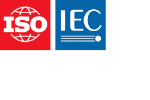Тезис
ISO/IEC 15149-1:2014 specifies the physical layer and media access control layer protocols of wireless network over a magnetic field in a low frequency band (~300 kHz) for wireless communication in harsh environment (around metal, underwater, underground, etc.).
The physical layer protocol is designed for the following scope:
- low carrier frequency for large magnetic field area and reliable communication in harsh environment;
- simple and robust modulation for a low implementation cost and error performance;
- variable coding and bandwidth for a link adaptation.
The media access control layer protocol is designed for the following scope:
- simple and efficient network topology for low power consumption;
- variable superframe structure for compact and efficient data transmission;
- dynamic address assignment for small packet size and efficient address management.
ISO/IEC 15149-1:2014 supports several kbps data transmission in wireless network within a distance of several metres. It can be applied to various services such as the following areas:
- environmental industry to manage pollution levels in soil and water using wireless underground or underwater sensors;
- construction industry to monitor the integrity of buildings and bridges using wireless, inner-corrosion sensors;
- consumer-electronics industry to detect food spoilage in wet, airtight storage areas and transfer the sensing data from the inside to the outside;
- agricultural industry to manage the moisture level as well as mineral status in soil using wireless, buried sensors;
- transportation industry to manage road conditions and traffic information using wireless, underground sensors.
Общая информация
-
Текущий статус: ОпубликованоДата публикации: 2014-07Этап: Рассылка краткого отчета о пересмотре [90.60]
-
Версия: 1
-
Технический комитет :ISO/IEC JTC 1/SC 6ICS :35.110
- RSS обновления
Жизненный цикл
-
Ранее
ОтозваноISO/IEC 15149:2011
-
Сейчас
ОпубликованоISO/IEC 15149-1:2014
Стандарт, который пересматривается каждые 5 лет
Этап: 90.60 (Hа стадии пересмотра)-
00
Предварительная стадия
-
10
Стадия, связанная с внесением предложения
-
20
Подготовительная стадия
-
30
Стадия, связанная с подготовкой проекта комитета
-
40
Стадия, связанная с рассмотрением проекта международного стандарта
-
50
Стадия, на которой осуществляется принятие стандарта
-
60
Стадия, на которой осуществляется публикация
-
90
Стадия пересмотра
-
95
Стадия, на которой осуществляется отмена стандарта
-
00


